Janet Heimlich's Blog, page 3
January 24, 2013
What one bishop’s “apology” really means

Yesterday, one of the country’s most prominent religious leaders apologized for his role in the victimization of hundreds of children who fell prey to pedophile priests under his supervision.
Except his apology was not really an apology at all. Here’s what Los Angeles Archdiocese Bishop Thomas J. Curry actually said:
“I wish to acknowledge and apologize for those instances when I made decisions regarding the treatment and disposition of clergy accused of sexual abuse that in retrospect appear inadequate or mistaken.” Curry added, “Like many others, I have come to a clearer understanding over the years of the causes and treatment of sexual abuse, and I have fully implemented in my pastoral region the archdiocese’s policies and procedures for reporting abuse, screening those who supervise children and abuse prevention training for adults and children.”
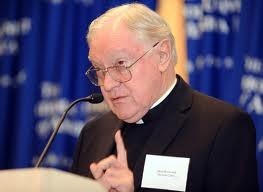
Bishop Thomas J. Curry
Let’s be clear: Anyone raised in the Catholic Church—much less a 70-year-old bishop such as Curry—knows full well what it means to be contrite. In fact, deeply felt and expressed contrition, is a requirement for Catholics who have committed what the church calls “mortal sins.” (Mortal sins being violations that are so egregious that the violator has broken with God.)
Curry’s statement is not an apology. It’s a defense, one that he is putting forth now, as he faces a lawsuit representing hundreds of victims and one that will ultimately lead to the release of documents that pertain to the actions of nearly 90 priests.
When you strip away the attorney-approved language from Curry’s statement, what the bishop really said was, “I didn’t know any better.” And despite his powerful position as advisor to the archbishop of the largest archdiocese in the nation, Curry indicated that he was simply “like many others.” In other words, anyone else in his situation would have done the same thing. I am not guilty.
The statement is disgraceful and disrespects the victims of pedophile priests everywhere. Documents that have recently come to light reveal communications Curry had with his archbishop, in which they discussed ways to conceal cases of molestation from law enforcement. One particular case involves a priest who admitted to sexually abusing 13 boys during his 36 years in the Los Angeles archdiocese. Yet, rather than reporting the man to police, Curry said he should be sent to “a lawyer who is also a psychiatrist,” thereby putting “the reports under the protection of privilege.”
It is doubtful Curry or the archbishop will face criminal charges, as the revelation of the documents occurred decades past the three-year statute of limitations for felonies that would apply here, so Curry is most likely concerned about how his statements might have affected the lawsuit. But I venture that Curry’s carefully chosen words reveal another reason for protecting these men
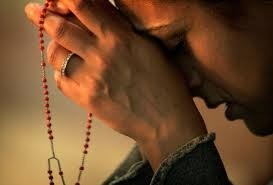 Under canon law, Curry would not have been found to have done anything that awful. You see, while Catholics must confess, show contrition, and pay penance when they have committed a mortal sin, are not considered to have committed a “mortal sin,” that’s only in cases when the individual knew what they were doing was wrong but did it anyway. Those who were not aware they were committing a grave act at the time—or, perhaps, as Curry put it, lacked “a clear understanding” of the seriousness of the situation—are not required to confess, act contrite, or pay penance.
Under canon law, Curry would not have been found to have done anything that awful. You see, while Catholics must confess, show contrition, and pay penance when they have committed a mortal sin, are not considered to have committed a “mortal sin,” that’s only in cases when the individual knew what they were doing was wrong but did it anyway. Those who were not aware they were committing a grave act at the time—or, perhaps, as Curry put it, lacked “a clear understanding” of the seriousness of the situation—are not required to confess, act contrite, or pay penance.
In other words, such ignorance gets one off the hook, as the individual has not committed a mortal sin, in the eyes of the church.
Do ethics or secular law offer any guidance to men like Curry? Probably not. If he is like many other Catholic officials, he would primarily allow canon law to determine whether or not he did anything wrong. So, Curry might verily believe that he doesn’t have anything to apologize for. Pope Benedict XVI highlighted this perception in a 2001 letter he cowrote. Back then, he was named Cardinal Joseph Ratzinger and headed the Congregation for the Doctrine of Faith—the office that decided untold numbers of clergy sexual abuse cases. Ratzinger wrote: “The functions of judge, promoter of justice, notary and legal representative can validly be performed for these [child sexual abuse] cases only by priests.”
So, in other words, damn secular law, damn society’s code of ethics, and damn the lives of child victims who would have sought healing and comfort from the words of a man who was largely responsible for their pain.
Let’s hope that the light being shown on cases such as Bishop Curry’s will make it harder for Catholic officials to come up with excuses as to why they protected the pedophiles, instead of their victims.
December 8, 2012
The impact of our beliefs

As we approach the holidays, we are often reminded of how much religion permeates our culture. Christmas trees, menorahs, Kwanzaa traditions, Santa at the mall, holiday music on every radio station. December also marks the beginning of the Islamic New Year.
We can’t get away from it. During this time of year, symbols of faith are ubiquitous.
With the exception of some extremists who feel their particular holiday is not getting enough attention, most people seem happy to celebrate their holidays alongside others who share different beliefs. We should not take this for granted, because when it comes to improving the lives of children who are raised with faith, one of the biggest obstacles seems to be disdain for other people’s beliefs.
I used to condemn various religions until I realized that being part of a belief system is in our DNA. Even if we put aside everything that has to do with God-worship, each of us believes in something that is not empirically known. For example, I believe that if everybody began putting away our shopping carts, instead of leaving them in the parking lot for attendants to put away, our communities would be a little friendlier. I believe people would be nicer to be around if they spent more time doing what makes them happy. I believe my daughter will grow up to be a caring and passionate adult.
Yet I would be hard pressed to find anyone who believes just what I do. So, in the quest to make this world a better place, it’s counter productive to spend our energy disputing other people’s beliefs. I’m not saying we have to respect other people’s beliefs, only that we have to simply accept the fact that everyone has his or her own ideas about what feels true.
What is productive when considering our different faiths? I suggest we ask the question, what impact does our faith have on others? The focus of my work, of course, has been on the lives of children, who often get little say about what belief systems they subscribe to.
 Therefore, I ask, does carrying out your beliefs help the children in your life? Could it be harming them?
Therefore, I ask, does carrying out your beliefs help the children in your life? Could it be harming them?
This holiday season, I propose we take time to not just revel in our own beliefs, but think about how our beliefs affect the children we are responsible for. I’m going to think about that the next time my daughter and I are out buying holiday gifts and I tell her to put away the shopping cart.
November 24, 2012
A New Venture: The Child-Friendly Faith Project

As most of you know, I have devoted much of the last four years to researching and writing about religious child maltreatment. I intend to continue to learn all I can about this form of abuse and neglect.
However, it’s time to begin a new path. In the fall of 2012, I and a small group of child advocates began a nonprofit organization called the Child-Friendly Faith Project. It is nonpartisan and has been designated by the IRS as a 501c(3), which allows interested parties to make tax-deductible contributions.
What sets the CFFP apart from other child advocacy organizations is that it aims to educate the public specifically about the impact that religious, spiritual, and cultural beliefs and practices have on children. Whether the effects are good or bad, we believe that Americans and others owe it to children to seriously consider their ideologies. Some may be beneficial to children; some may be harmful. Let’s make sure we examine our beliefs before we assume they are also helpful to society’s youngest members.
A few things we believe: 1) Faith can be beneficial and harmful to children. 2) It is not our place to promote or denigrate any particular religion, place of worship, faith group, or ideology but, rather, look at how people’s beliefs and practices affect children. The ultimate goal of CFF is to ensure that a religious or spiritual upbringing is a healthy experience for every child.
To take part in the conversation, we invite you to join our closed Facebook group and contribute to our Facebook page. Our Twitter page can be found here.
Thank you for your support. We look forward to hearing from you!
October 13, 2012
Pious and bloodthirsty

This week, a 14-year-old Pakistani girl named Malala Yousufzai was nearly killed when a member of the Taliban shot her on a school bus. Her “crime”? Trying to seek an education for herself and for other girls. The assassination attempt exemplifies how the very “holy” will stop at nothing to gain power.
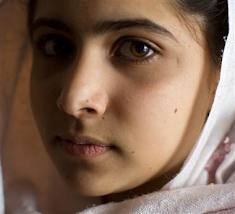
Malala Yousufzai
Malala is no ordinary 14-year-old. In the eyes of the Taliban, she is a very real threat to their extremist agenda. Even at her young age, she has been an international political figure, speaking out against the Taliban’s terror tactics in preventing girls from being educated. Girls who go to school in Taliban strongholds risk having acid splashed in their faces or being killed.
When Malala was just twelve years old, she met with President Obama’s special envoy to the region Richard Holbrook and begged U.S. officials to help girls receive an education in safety. Malala, who was shot in the head and neck, is in satisfactory condition.

Lawrence O’Donnell
Pakistani officials have deemed the assassination attempt “a crime against humanity.” People are condemning the attack all over the globe. Numerous individuals have already been arrested.Two of Malala’s classmates were also wounded in the attack. The crime was highlighted on MSNBC’s “The Last Word with Lawrence O’Donnell.” Calling Malala “one of the bravest girls in the world,” O’Donnell noted how a Taliban spokesperson defended the attack as having been “ordered” by Shariah.
The Taliban jusified their every action by claiming that they are “holy warriors” defending Islam. Without that status of “holy warrior,” they would have no justification for anything they do. More temperate Muslims believe and insist that the Taliban are not holy warriors for Islam, that the Taliban have illegitimately seized that label for themselves and hide behind it to defend their actions.
One of the religious justifications given by the Taliban was a passage in the Qur’an, telling of the killing of a child who was predicted to “cause a bad name” for the child’s pious parents. O’Donnell continued:
Religious extremists all make the same mistake. They all fail to understand that all the foundational holy books of major religions—all of them—have really, really crazy, dangerous stuff in them, stuff that was written by men. Men who were not just fallible, but men who were wrong. Some of them claimed at the time to be taking dictation from God, some of them didn’t. The craziest stuff in the holy books is always the homicidal stuff. It’s always the death penalties.
And yet it would be a mistake to think that Christians, even those living in industrialized nations, are not capable of the kind of bloodthirsty and public religious extremism that involves the killing of children. In his report, Lawrence O’Donnell makes this naïve statement:
The Bible is full of death penalties. Death penalties for not observing the Sabbath. Death penalties for adultery. Death penalties for things that not one follower of the holy Bible on the Earth today would ever, ever dream of trying to enforce.
Apparently, O’Donnell had not heard of Christian extremists who spout “crazy, dangerous stuff” right here in the United States. I am talking about men who, like the Taliban, maintain a legalistic adherence to their holy book and have also pledged to fulfill their perceived roles as “holy warriors.” I am talking about men who, like the Taliban, advocate for the execution of children.
This year, a Republican candidate for the Arkansas House of Representatives named Charlie Fuqua had a book published entitled God’s Law: The Only Political Solution that calls for a law to be passed that would allow for “rebellious children” to be given the death penalty. Fuqua gets this idea from Deuteronomy 21:18-21, which calls for a “stubborn and rebellious son” to be stoned to death.
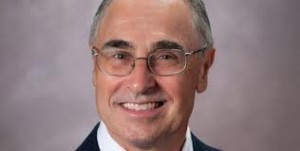
Charlie Fuqua
As Fuqua writes in God’s Law,
The maintenance of civil order in society rests on the foundation of family discipline. Therefore, a child who disrespects his parents must be permanently removed from society in a way that gives an example to all other children of the importance of respect for parents. The death penalty for rebellious children is not something to be taken lightly.
Now, most Christians, even many biblical literalists, would not advocate for parents to have disobedient sons be executed. But let’s be clear: Fuqua is not some mentally ill half-wit blogging from an isolated storeroom somewhere. In fact, he was elected to the Arkansas Legislature in 1997 where he served on the Judiciary and Children and Families Committees. His campaign website boasts that he was given the “Friend Of The Family” award from the Arkansas Christian Coalition. What’s more, Fuqua has received financial support from the Arkansas Republican Party and members of the U.S. House Republicans.
And to top things off, Fuqua is not alone in urging Americans to follow the Bible and put children to death. One Christian blogger and Pennsylvania pastor calls the Deuteronomy passage ”holy, just, and good” and “a delight to the heart of God’s true people.” Furthermore, the blogger writes:
Christians must not be embarrassed by the law of Deuteronomy 21:18-21, nor should they be chagrined when others try to use it to discredit the case laws of the Old Testament. Properly understood, it displays the wisdom and mercy of God in restraining wickedness so that the righteous might flourish in peace. It is those who reject this case law that should be embarrassed, for they have cast reproach on God and His law, cast aside the testimony of Christ, and have substituted their own imaginations (Jer. 7:24) for the blessed Word of God.
Is it fair to compare Christian extremists like Fuqua who merely talk about executing children and the Taliban who actually carry out those actions? Yes, once we factor in the vast differences between our culture and that in which the Taliban flourishes. Simply put, America has more economic and educational opportunities than Pakistan, and as such, we are much better able to curb religious extremism. The Taliban commits more heinous acts, not because they worship a different god, or because their religious text is inferior to the Bible, but because they have the luxury of trying to control the poor and uneducated, while their government has little ability to enforce its laws.
If America had those same struggles, men like Charlie Fuqua would not only be talking about executing children, they would be lining up to cast the first stone.
September 15, 2012
A deadly ritual

If you want to understand just how religious authoritarianism harms children, look no further than the actions of a powerful group of rabbis in New York known as Agudath Israel. AI is a Jewish communal organization that represents the most conservative Jewish believers, the haredi or ultra-Orthodox Jews.
These rabbis are seeking to sue the City of New York after the health department announced it would adopt a measure that requires parents to sign a written consent form warning them of the dangers of a circumcision ritual called metzitzah b’peh. (The policy was just passed.) If you have not heard of metzitzah b’peh, brace yourself: It involves the sucking of the bleeding penis by the circumcising rabbi or mohel.
The practice of metzitzah b’peh is thousands of years old. Originally, it was believed to clean the wound. Fast forward to today and not only do we find that this segment of the Jewish population is allowing rabbis to do what would normally be considered to be sexual abuse, the ritual has led to babies dying or suffering brain damage after contracting the herpes simplex I virus.
Neonatal herpes infections of all kinds are nearly always fatal in infants. An investigation by the New York City Board of Health found that, in the last decade, an average of one baby per year who underwent metzitzah b’peh contracted the virus. Two of the infants died, and two suffered brain damage.
“This is a ritual. . . that’s come down through the ages, and now it has met modern science,” the chair of preventive medicine at Vanderbilt University told ABC News. . “It’s certainly not something any of us recommend in the modern infection-control era,” he said.
Not surprisingly, AI proclaimed that, in passing the parental consent policy, New York health officials are impeding on religious freedom, indicating that the religious leaders know more about infectious diseases than doctors. In a statement signed by 200 haredi rabbis, the group accused the health department of “spreading lies” and that participating in the “evil plans” of the department is forbidden by the Torah.
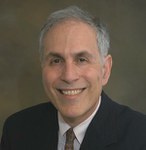
Dr. Jonathan Zenilman
Most people would be shocked that religious leaders would support such a disgusting—and potentially deadly—practice. In a letter he wrote to Mayor Michael Bloomberg, Johns Hopkins Bayview Medical Center infectious disease specialist Dr. Jonathan Zenilman wrote that the AI is “doing a terrible disservice to the Jewish Community and the public at large.”
But as I have repeatedly pointed out, such disregard for children’s rights is part and parcel of religious authoritarian cultures like the haredi. Members of this segment of the Jewish population consider their belief system to be the one, true faith, and they are convinced that all other believers, including other Jews, are spiritually inferior. In addition, the haredi manifest the three perfect-storm characteristics of a religious authoritarian culture: They have a strict, social hierarchy; they are unusually fearful; and they are socially separatist.
As I continue to reiterate, the way religious authoritarianism harms children is through the parents—or, rather, through parental impotence. In religious authoritarian cultures, parents lack autonomy in how to raise their children. Instead, they rely on—or are forced to adopt—child-rearing practices that fail to attend to children’s physical and emotional needs. In fact, the New York health department has received numerous complaints from parents whose mohels went so far as to perform metzitzhah b’peh on their babies without their consent.
It stands to reason that the powerful rabbis of Agudath Israel don’t want parents to be informed about the dangers of metzitzah b’peh, even though it puts children at risk for death or being left permanently disabled. Instead, these men prefer to leave mothers and fathers in the dark, where they will remain powerless to make critical decisions in their children’s lives.
August 11, 2012
My interview on Freedomain Radio
I had the pleasure to be interviewed by Stefan Molyneux on his popular podcast/youtube program, Freedomain Radio. Not only did I appreciate Stefan allowing the interview to run for an hour, he asked me questions no one else has posed to me. For example, Stefan questioned whether any belief system based on “irrational” ideas should be taught to children. I hope you’ll tune in to listen to the answer!
August 5, 2012
No Refuge
 In Breaking Their Will, I write about the polygamous, religious sect known as the Fundamentalist Church of Jesus Christ of Latter-day Saints or FLDS. Around 2003, the group’s leader, Warren Jeffs, moved hundreds of followers from Utah and Arizona to West Texas, hoping to set up what he called a “place of refuge.” Five years later, authorities raided the sect. Child Protective Services (CPS) removed more than 400 children based on concerns that underage girls were being “spiritually” married, often to much older men. Jeffs—who has dozens of wives, including 24 he “spiritually” married when they were minors—was later convicted by a Texas court and sentenced to life in prison for raping two girls, ages 12 and 14.
In Breaking Their Will, I write about the polygamous, religious sect known as the Fundamentalist Church of Jesus Christ of Latter-day Saints or FLDS. Around 2003, the group’s leader, Warren Jeffs, moved hundreds of followers from Utah and Arizona to West Texas, hoping to set up what he called a “place of refuge.” Five years later, authorities raided the sect. Child Protective Services (CPS) removed more than 400 children based on concerns that underage girls were being “spiritually” married, often to much older men. Jeffs—who has dozens of wives, including 24 he “spiritually” married when they were minors—was later convicted by a Texas court and sentenced to life in prison for raping two girls, ages 12 and 14.
The investigation by CPS made international headlines—the child custody battle that followed was the largest in U.S. history. The media tended to focus on the controversy of removing the children, often addressing the question of whether the state had infringed on the group’s religious rights. But the media left out important information. Namely, the sect’s long history of child abuse and neglect. In addition, the press largely failed to cover conflicts within the Department of Family and Protective Services, the agency that oversees CPS. According to critics, some of whom worked for the department, the state buckled under public pressure in closing all the cases and failing to take away the custodial rights of any parents, including Jeffs and other perpetrators.
This month’s issue of the Texas Observer includes a feature story I wrote on the 2008 Texas investigation. It shows how the state had a rare opportunity to protect children in a secretive group from abuse and neglect and how critics allege that it failed to seize that opportunity. In publishing “No Refuge,” the Observer upholds its reputation as a magazine that supports investigative journalism and exposes injustice. I hope you enjoy the article.
July 29, 2012
A road trip like no other

My daughter and I just returned from a marvelous 2-month road trip. Some of our stops were work-related—I gave talks in a number of cities—but we also had a lot of fun being tourists and visiting old friends.
We began in New Orleans. As campy as it sounds, we first took in a ghost tour. These evening tours are not for the faint of heart. I am still haunted, you could say, by the story of Delphine LaLaurie. In the 1830s, the socialite, along with her husband, tortured adult and child slaves in their home. Later in the week, I spoke at the American Humanist Association Conference. I also joined in on a discussion group where participants talked about religious child maltreatment and what we can do to raise awareness of this problem. Here is a shaky video clip from the discussion.
After visiting with family in Cincinnati, we headed up to a place I’d always wanted to see: Niagara Falls. Don’t let anyone tell you that “the falls” is too touristy to be enjoyed. It is one of the most amazing natural wonders on this planet, no matter how many people gawk at it each day. We went on a a tour that allowed us to take in the falls from different angles, including right next to the crashing water where you wear a tour-issued poncho and sandals.
I gave several talks in Canada. The first was in Toronto at a “brown bag” lunch meeting at the United Church of Canada, the country’s largest Protestant religious organization, to see how the church might educate more conservative organizations about religious child maltreatment. The UCC is wonderfully progressive. It opened its doors to gays and lesbians in the 1980s, and in 2007, it formally opposed the physical punishment of children.
That night, I talked to a group about the religious roots of male and female genital cutting at the Toronto Women’s Bookstore. It was the first time I had focused on this topic. I have avoided doing so, because Americans tend to get very upset when I condemn medically unnecessary male circumcision, and these debates distract from other issues. But I strongly oppose this procedure being done on girls and boys. But my advocacy didn’t end there. Before I knew it, I was marching in Toronto’s Gay Pride Parade along with other intactivists!
We then drove to Montreal, where I spoke at the International Cultic Studies Association Conference. One talk I especially enjoyed hearing was given by Cynthia Kunsman on patriarchal religious movements in the U.S. We also got to spend a few nights at the Montreal Jazz Festival, which has got to be the largest jazz festival in the world. To save money, we stayed in student housing, which turned out to be Grey Nuns Residence, a historic, former convent.
After visiting with family in Maine, we headed down the East Coast. In Boston, I met with Greg Epstein, Harvard’s humanist chaplain. Greg is heading up some exciting programs that aim to improve the lives of families and the broader community. I look forward to staying in touch with him. In New York, I gave a talk at Bluestockings Bookstore. 
I also met with Rabbi (and former police officer) Gary Moskowitz. I initially connected with Gary after reading a pull-no-punches letter to the editor in the Jewish Reporter following the murder of Leiby Kletsky in Brooklyn. Rabbi Moskowitz continues to be an outspoken critic of the way many in the orthodox Jewish community handle cases of child abuse. Together, he and I have created the Child Protection Institute, which educates religious organizations about child maltreatment.
Before making it back home, we stopped in Hot Springs, Arkansas, and rewarded ourselves with a thermal spa treatment at the Buckstaff Bath House. Hot Springs has 2 claims to fame: It is the boyhood home of President Bill Clinton, and it has been a mecca for spa enthusiasts since the early 1900s. Many of the historic bath houses have been preserved, although the Buckstaff is the only one still operating. This year it celebrates its 100th anniversary.
Our summer sojourn was one of the most enjoyable trips I have ever made. We experienced new places and met amazing people. I especially appreciated joining forces with those who are committed to raising awareness of, and eradicating, religious child maltreatment. Only a few years ago, many of us were each out there fighting alone and, sadly, doing a lot of shouting into the wind. But now policy makers, the media, and religious organizations are beginning to pay attention. Together, we are helping to protect children’s rights to a safe, healthy, and happy life.
June 10, 2012
Keeping you up to date
Dear Friends,
Forgive my delinquency in keeping my blog up to date. I hear this is one of the no-no’s of blogging. I have had to focus on some exciting projects that have taken me away from the blog. As most of you know, I tend not to send out frequent, chatty posts but more in-depth ones, which tend to be time-consuming. I will continue to conduct my research and bring you comprehensive coverage of significant cases involving religious child maltreatment, however, to keep the flow of information going, I have decided to also send out shorter, news updates which take less time to put together. Thank you for caring about the issue of religious child maltreatment and for your support!
Best regards,
Janet
Facebook group
The Child-Friendly Faith Facebook group has been a wonderful experience! This closed group is comprised of more than 150 members who share their expertise and insights regarding issues of faith and kids. It is a great opportunity for people to express their thoughts and learn from others. Members understand that we do not condone or castigate any religion, faith group, or belief system. Rather, CFF is a forum for people to discuss how religion both helps and harms society’s youngest members.
My talks in New Orleans
On June 8, I spoke at the American Humanist Association Annual Conference and discussed religious child maltreatment and what we can do to stop it. The Q&A was a great opportunity to hear people’s concerns. On June 11, I will give a more informal talk at the New Orleans Healing Center. This more intimate forum will allow for more discussion. I hope those living in New Orleans will come! As you can see from the link, the discussion will begin at 7pm, but feel free to join us at 6pm at Fatoush, a restaurant that is in the center.
More updates
[image error]
Pastor convicted: A Wisconsin pastor was convicted of conspiracy to commit child abuse for advocating the use of wooden rods to spank children as young as infants. Philip Caminiti of the Aleitheia Bible Church was sentenced to two years in prison. This finding could open the door to future convictions of others who preach and teach parents that God wants them to hit their children.
[image error]
Parents of dead teen plead guilty: Facing a possible retrial for manslaughter, JaLea and Greg Swezey of Washington State accepted pleas in the faith healing-related death case of their son, 17-year-old Zachary Swezey, who died from a ruptured appendix in 2009. While the parents claimed to not believe that Zachary was dying, the couple was prosecuted for failing to provide the teen medical care. The Swezeys are members of the Church of the First Born, whose members believe that faith healing is superior to medical care. JaLea Swezey pleaded guilty third-degree criminal mistreatment, a gross misdemeanor. Greg Swezey will plead guilty to the same charge in two years, if he follows court orders. Both parents are required to contact Child Protective Services if their 4-year-old daughter or any other minor under their care gets hurt or sick for the next four years.
CDC report on infant deaths due to Jewish circumcision ritual: According to a recent report by the Centers for Disease Control, 11 infants in New York City have contracted herpes through the circumcision ritual known as metzitzah b’peh from 2000 to 2011. Of those 11 cases, 2 infants died, and others were left with brain damage and long-term neurologic disabilities. According to the CDC, it’s difficult to prevent the potentially deadly religious practice, because it usually occurs outside of healthcare facilities.
Upcoming article on FLDS investigation: One thing that has been keeping me busy is an investigative article I am writing about the 2008 Texas investigation of the Fundamentalist Church of Jesus Christ of Latter-day Saints. The article will be out in August. Stay tuned…
March 31, 2012
The Politics of Big Religion

I recently read that the attorney for Bishop Robert Finn is trying to get his client's case thrown out by convincing a judge that Finn was not responsible for reporting cases of child sexual abuse.
You might remember that Finn of the Catholic Diocese of Kansas City-St. Joseph in Kansas City, Missouri is the highest ranking member of the Catholic Church to face criminal charges for failing to report suspected child sexual abuse in the United States. In this case, the accused perpetrator is Father Shawn Ratigan who allegedly took pornographic photographs of children. Ratigan faces thirteen counts of child pornography and is in jail awaiting trial. Finn has been charged with one misdemeanor count of failing to report suspected abuse of a child. If convicted, he could be sentenced to as much as one year in prison and pay a $1,000 fine.
Bishop Robert Finn
Finn's lawyer J.R. Hobbs claims that Finn was not legally required to report Ratigan. Instead, Hobbs says another church official, Monsignor Robert Murphy, was designated as the Diocese's mandated reporter. In fact, Murphy, was the individual whom ultimately did report Ratigan to police. As Hobbs argued before Jackson County Circuit Judge John Torrence, "Bishop Finn had no statutory duty to report." Judge Torrence said he would take the matter under advisement and likely rule on the matter next week.
As I write in Breaking Their Will, clergy should be obligated to report suspected cases of abuse, just as lawyers, doctors, and schoolteachers are. After all, these leaders are often privy to the most intimate of family matters and are, therefore, likely to hear about cases where children are being harmed. But because mandatory reporting laws are so weak and confusing, statistics show that clergy, as a professional group,rarely report abuse.
Why is this? The answer has to do with the state statutes that determine whether clergy is required to report suspected cases of child abuse. States have as much consistency in this area as they do when naming their state birds. As a result of lobbying by religious institutions, state laws contain "privileged communication" loopholes that permit clergy to avoid having to report abuse if they hear about a case during confession. Sometimes confession is defined very broadly. Some states exempt clergy from having to report altogether. And even if clergy are prosecuted, the penalties for failing to report abuse are very light. The laws are so confusing, many clergy say they aren't sure whether they are supposed to report or not.
Thankfully, Missouri's law is quite clearcut. It requires school officials, clergy, and virtually anyone with access to, and control over, children to immediately alert child protective services and law enforcement, if they have reason to suspect abuse. So it seems doubtful that Hobbs could convince Judge Torrence that Finn was not obligated to report Ratigan. It is irrelevant that the Kansas City Diocese's policies might let Finn off the hook; it would be like saying that a banker is not guilty of embezzling funds if the bank's policies had no rule against embezzlement.
That said, we cannot underestimate the power that religious institutions enjoy. The weak and contradictory state mandatory reporting laws are testament to how this power has protected clergy, instead of child victims of abuse. Judges have frequently taken the side of religious institutions. For example, they have allowed churches to seal human resources records, thereby hiding evidence that the church knew about cases of clergy abuse and covered them up.
Just as lawmakers have done the bidding of Big Oil and Big Tobacco, they have also done the bidding of Big Religion. Let's hope that is not the case with Judge Torrence. Bishop Robert Finn should be made to stand trial and face a jury of his peers who will determine if he has, in fact, broken the law.




